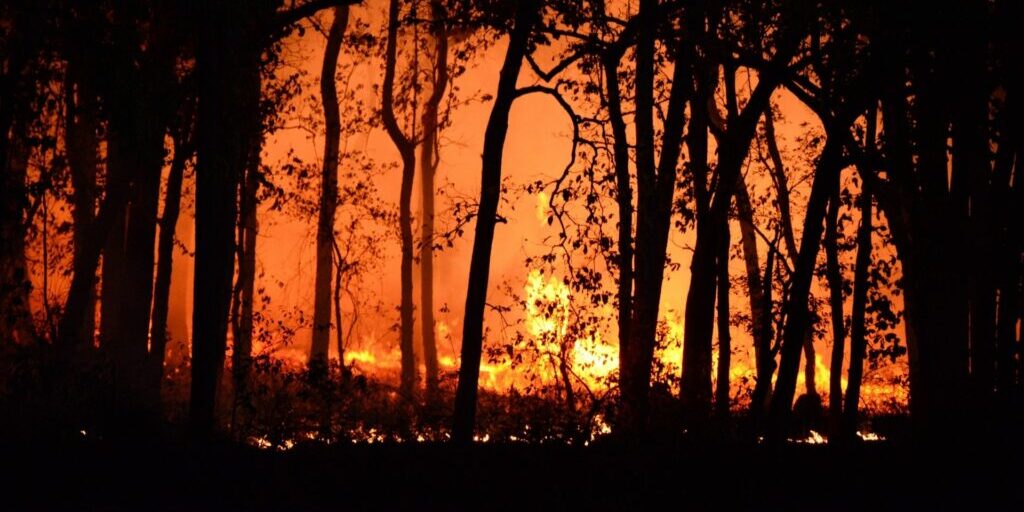Affected by bushfire? A guide to managing your employees during a natural disaster

With many Queensland and New South Wales residents displaced from homes due to large-scale bushfires and wide swathes of the country on high fire alert, many employers are contending with the impact these natural disasters may have on their business and their employees. This is why it is important for employers to understand their rights in managing employees in the midst of a natural disaster.
Section 524 of the Fair Work Act 2009 (Cth) (FW Act) provides that employers may “stand down” an employee without pay during a period in which the employee cannot be usefully employed, because of a stoppage of work for any cause for which the employer cannot reasonably be held responsible (such as a bushfire).
As a result, if your business is forced to close due to the bushfires, then you may choose to stand down your employees. If, however, your business does not need to close down, but an employee cannot attend due to not being able to safely travel, this would not give rise to a stand down. Instead you may wish to grant annual leave, or offer to pay them regardless of the cause as a gesture of goodwill without any obligation to do so.
An enterprise agreement or modern award may also contain provisions which provide for additional terms or requirements in the case of natural disasters and stand downs, such as natural disaster leave or a requirement to consult, so you should ensure you check if any such provision exists for your business.
“Usefully employed”
You can only stand an employee down without pay if they cannot be usefully employed.
Depending on the size and scale of your business, it may still be possible for the employee to be usefully employed. For example, an administrative employee may be able to work from home, or there may be another location that employees could work at.
To ensure you satisfy the requirements to be able to stand employees down, make sure you give consideration to these alternatives to usefully employ your employees, and implement any such changes in accordance with the FW Act and any other applicable industrial instrument.
Leave entitlements
Where an employer has decided to stand employees down without pay, they may also wish to propose that the employees access their annual leave over this stand down period to ensure continued income. However, generally annual leave can only be granted by agreement between both parties, so you should seek agreement with an employee before proceeding on this basis.
A full-time or part-time employee may also wish to access personal/carer’s leave. However, under the FW Act, this may only be granted where the employee is unfit for work because of illness or injury, or to provide care or support to a member of their immediate family or household because of illness, injury, or unexpected emergency.
In order to access this leave, an employee should provide notice to their employer that they wish to take this leave, and will be required to provide evidence of the reason for the leave on request by their employer.
How to notify employees of stand down
Once a decision to stand employees down has been made due to a natural disaster, an employer should notify employees as soon as practicable (in writing where possible) that:
- they will be stood down from work;
- the stand down will be unpaid (unless the business decides at its discretion or pursuant to an industrial instrument to continue to pay employees);
- the period of stand down will count towards service for the purposes of annual and long service leave;
- employees may be able to access annual or personal/carer’s leave depending on their circumstances; and
- they can contact Centrelink, or other government services for financial and other forms of assistance with the relevant contact details for these services.
Once you know when your business can start operating again and the stand down can end, let your employees know as soon as possible.
What if an employee is asked to volunteer to assist in disaster-relief?
Employees may be requested to volunteer to assist the community with disaster relief activities, through recognized emergency management bodies such as the State Emergency Service or the Country Fire Authority.
An employee who is a member of a recognised emergency management body is entitled to take a period of unpaid community service leave for the purpose of engaging in an eligible community service activity, such as dealing with a natural disaster, pursuant to the FW Act.
The duration of absence permitted is not stipulated, however it must be reasonable having regard to the following circumstances:
- the time that the employee is engaged in the activity;
- reasonable travel time associated with the activity; and
- reasonable rest time immediately following the activity.
An employee who wishes to take a period of community service leave must provide their employer with notice as soon as practicable, including the period (or expected period) of the absence, and satisfy any evidentiary requirements.
To be eligible for this leave, the following criteria must be met:
- The employee engages in an activity that involves dealing with an emergency or natural disaster;
- The employee engages in the activity on a voluntary basis;
- The employee is a member of, or has a member‑like association with, a recognised emergency management body; and
- Either:
- The employee was requested by or on behalf of the body to engage in the activity; or
- No such request was made, but it would be reasonable to expect that, if the circumstances had permitted the making of such a request, it is likely that such a request would have been made.
Where to from here?
We are committed to assisting employers through this difficult period. If you require further assistance in managing and supporting your employees and business, contact NRA Legal on 1800 572 679 for advice.
By Thomas Parer and Lindsay Carroll, NRA Legal
Latest updates
Contact our team today






